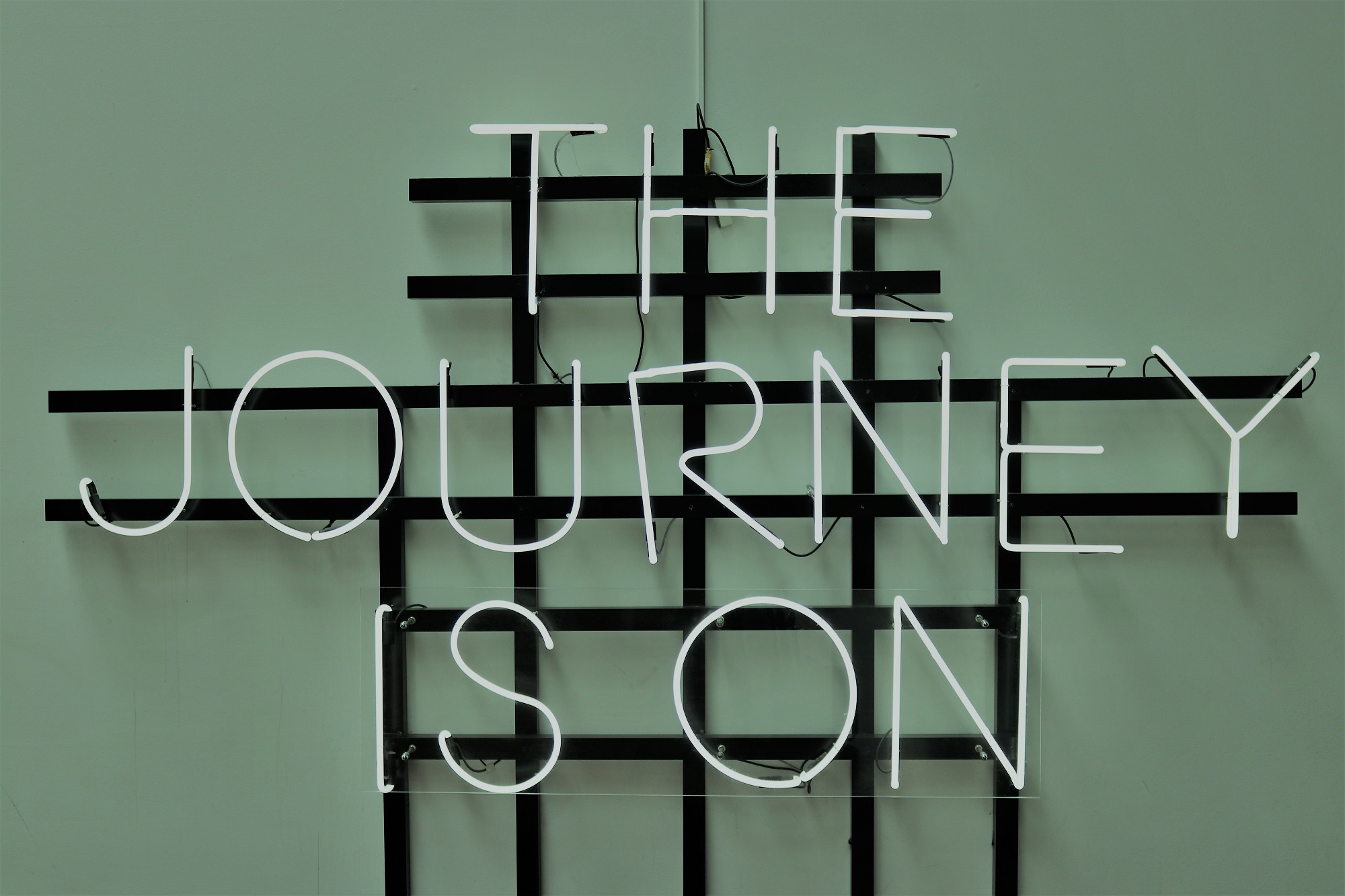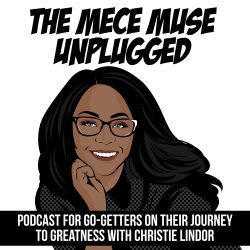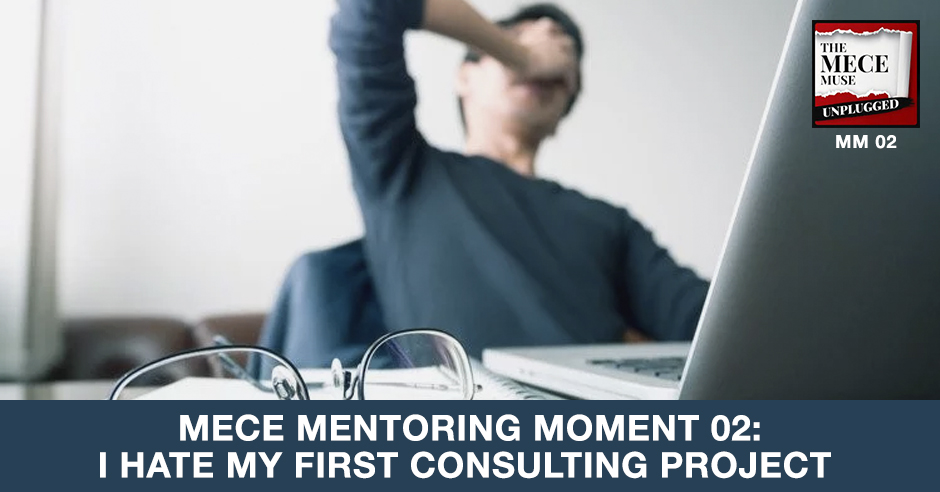Christie answers an email from a fan that hates his first consulting project and is seeking career advice on how to find other engagements.
Listen to the Episode Here:
Podcast: Play in new window | Download | Embed
Subscribe: Apple Podcasts | Email | TuneIn | RSS | More
This is a segment that I call MECE Mentoring Moments. For those that are new to the show, MECE Mentoring Moments are essentially impromptu podcast interludes where I get a chance to answer a particular fan mail. For our second MECE Mentoring Moments, we got an email from Alex. Alex, thank you so much for listening to The MECE Muse Unplugged. He writes, “Hi, Christie. Thank you for this show. I was glad I stumbled on it. I started a new consulting position two months ago at a prestigious firm after spending two years in an engineering role. I hate my first project and sometimes feel like a glorified admin. My role is repetitive and the work is mundane. Even though I was told I would be on this project for five months, I recently heard from a peer that people that typically get placed on my project usually can expect to spend about a year or so there. I don’t know how I am going to last three more months, let alone the possibility of an extension. The work is beneath me and nothing I expected I would do as a strategy consultant. What should I do to find better projects?”
Alex, thank you for sending me this email. I read your email a couple of times and while I know you are frustrated, I wanted to take a step back and give you what I call a 20,000-feet view of where you really are in your new consulting role. The advice I’m going to give you here is from a person that’s not only spent my entire career in consulting, I’ve changed firms myself, and so this is coming from experience. With that lens, you have to realize that you are a newbie in a prestigious firm and you are inexperienced hire. That means you will be measured against other high performers that have already built up years of credibility, have already demonstrated performance, and also have established relationships and alliances. You have to realize that first and foremost. What does that mean? What that means is that you are essentially what I call unproven talent. You have to remember that you were hired because you’ve demonstrated potential, but you’ve not proven any performance yet. Those are two different things that sometimes younger consultants don’t realize. You’re hired in because you’ve demonstrated that you can do the work but you haven’t done it yet. This may not be the advice that you’re looking for, but you haven’t earned the right yet to ask for anything.

You have to build the basics from the ground up and build what I like to call career stamina. With doing so, you also have to build social and credibility capital. How do you do that? The biggest thing is focus on building relationships with your peers, with leaders, with clients. Look at how you can get involved with efforts internally in your firm. While you’re building relationships, that’s how you begin to find out what’s happening at your firm, what’s happening in your practice, what are some other projects that may be out there. Let people know that you’re interested and then I like to do what I call let it go. You don’t like your current project, I get that, but you’ve got to build up relationships and then let people know what is it that you are interested in, and then let it go. I call it the power of detachment. That’s something that I’m going to strongly recommend that you look to build as a skill set.
This is a quick sidebar, but I also recommend to you to listen to episode thirteen of this podcast. In episode thirteen, I gave advice to a graduate student that just received her first consulting job offer after years of being a scientist. In that episode, I talked about the power of detachment in a deeper dive. I definitely want you to check that out. Let it go. Number one, focus on building relationships to build that social capital. Going back to the project, you talk about it being mundane and it being beneath you. I also want to challenge you to instead of focusing on what you don’t have, focus on what you do have. You’ve been blessed. You’ve spent a couple of months and came into this great firm. You’ve got to build from the ground up. What does that mean you need to do? You need to look at how you do something simple and how do you perform it amazingly well. There’s a lot of power in having the humility to buckle down and do very simple tasks remarkably well. If you think about high-performing companies, organizations, and cultures, usually the ones that are out there is because they’re able to take something that’s simple and do it remarkably well. I challenge you to look at how you can do that mundane work and the work you feel is beneath you extremely well.
On the flip side, you are sitting on a goldmine of an opportunity to differentiate yourself. You may be thinking why. You mentioned in your email that you have an engineering background. Instead of hating that project, why don’t you find ways to bring innovation to that project using that background? You talk about the work being mundane and administrative, so why don’t you come up with some ways that you can take what is happening to the next level and share those ideas and those solutions with your leaders? Younger consultants also don’t realize that most leaders know what the perceptions of their projects are. They may not say that to you, but they know if they own certain projects that people think are cool or boring or challenging. They already know that, so chances are your leadership already has heard it all before. They probably know people don’t want to get on these projects. They’re already aware of that. In that lens, if you were to bring innovative ideas in an environment where everyone else hates the project, you automatically stand out from the pack with your leadership.
Being new, that is such an amazing opportunity and space to be in. Think about it that way and what you’ll find over the course of the rest of the project, if you do this 20% pivot in both your mindset and put in the ground work to establish your brand, focus on relationships, focus on developing what I call core consulting skills, be a team player, get involved at your firm, and figure out a way to differentiate yourself, you will build that proven credibility, that proven social capital. You start to build that over time to then be able to do whatever types of projects you want to do in the future. For right now, you got to stick it out. One of my mentors, Michelle, has a saying that I love. She says, “Christie, sometimes you got to eat your spinach.” Alex, I’m going to tell you, you’re going to have to eat your spinach and just stick it out. Focus on value creation and relationships, and everything you want will always fall into place in this type of work. With that, this concludes this episode’s MECE Mentoring Moments. Alex, I hope this was helpful.
For my introverts out there, you may want to check out episode eleven. We talk about introversion with Luis Vazquez of MightyIntrovert.com. It’s a great conversation. My other go-getters, for episode twelve, I have my first Where Are They Now? interview where I get to a chance to connect with a former colleague and we talk about all types of things. It’s a fun conversation. If you have any other thoughts, questions, or feedback for the show, you can always drop us a line at MECEMuseUnplugged@Gmail.com. This is Christie Lindor signing out for The MECE Muse Unplugged. Here’s to your journey to greatness.
Links used in this episode:
- episode thirteen – previous episode
- episode twelve – previous episode
- episode eleven – previous episode
- MightyIntrovert.com
- MECEMuseUnplugged@Gmail.com


